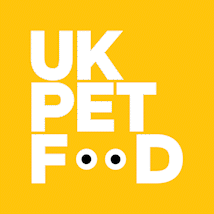The Importance of Hay For Small Herbivores
In practical terms, a diet akin to that of wild rabbits and other small herbivores should comprise at least 80% fibre-rich fresh grass or hay. Getting this aspect of the diet right is the single most important thing small herbivore owners can do to support optimum dental and digestive health.
HAY IS IMPORTANT FOR DIGESTIVE HEALTH:
The digestive system of small herbivores is fine-tuned for dealing with a diet of fibrous plant material and needs plenty of fibre to work efficiently. Long indigestible fibre stimulates the gut and keeps food moving through it. Shorter fermentable fibre moves to the caecum, where beneficial bacteria help to break it down. If dietary fibre intake is inadequate, gut motility reduces or stops altogether (gastric stasis). Gastric stasis is a serious condition for which veterinary attention should be sought immediately.
HAY IS IMPORTANT FOR DENTAL HEALTH:
To gain enough nutrients from their plant-based diet, wild herbivores have to eat for much of the day. Chewing on woody stems and fibrous vegetation wears the teeth down, so to compensate for this continual wear, the teeth of small herbivores are open rooted, meaning that they grow continuously. If they eat a diet that is lacking in fibre, there will be insufficient fibrous material to keep their teeth worn down and the end result is that teeth will become overgrown. Teeth that are too long will make it difficult to chew food effectively. Uneven wear may also cause sharp spikes to develop on the cheek teeth, causing painful sores and mouth ulcers.
HAY IS IMPORTANT FOR ENVIRONMENTAL ENRICHMENT:
Small herbivores benefit from being able to display natural behaviours and they also have a requirement for mental stimulation. In the wild, they spend extended periods of time foraging for food. Hay requires significant chewing, taking a relatively long time to eat. Providing unlimited hay, helps mimic natural foraging, helping to prevent boredom in pet herbivores and keeping them mentally stimulated.
HAY IN SMALL HERBIVORE DIETS:
Although grass can provide the fibre that these small herbivores need, it is rarely practical to rely on grass alone, especially during the winter months when supply may be scarce. Good quality, nutritionally appropriate hay, such as Timothy or meadow hay, is readily available and when stored appropriately, has the same nutritional benefits as grass.
Small herbivores should be offered unlimited hay, but a body-sized portion every day is a good guideline. To ensure they receive a nutritionally optimal diet, they should also be offered a carefully measured portion of species-specific dry food every morning and evening. To support dental and digestive health and mirror the natural diet, this too should be high in fibre. In addition, they should be fed a handful of appropriate fresh leafy green vegetables every day, and be provided with fresh clean drinking water at all times.
UK Pet Food’s posters are suitable for displaying at pet shops, veterinary practices and re-homing centres to encourage a conversation about diet between pet professionals and pet owners.






